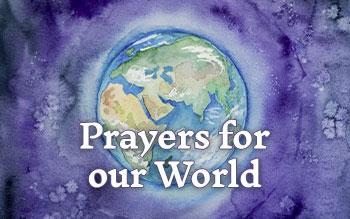Displaying items by tag: Nuclear programme
Iran: nuclear negotiations resume, executions mount, radicals battle reformists
Iran’s nuclear negotiations with the E3 countries (Germany, France, and the UK) have resumed in Geneva. With a packed agenda, the focus is on lifting sanctions, which have caused severe damage to the country's economy in recent years. Tehran’s foreign minister indicated a willingness to engage in indirect talks with the USA, but only on condition that military options would be abandoned. Inside the country, deep divisions have sharpened between reformists, who are calling for suspending uranium enrichment, cooperating with the IAEA, and easing repression, and hardliners, who demand the continuation of nuclear activities and reject compromise. Human rights concerns are mounting, with executions surging to at least 160 in a single month - a 54 percent increase compared to the previous year - bringing the year’s total to more than 800. Reformist voices, though accused of betrayal and sedition, continue to press for reconciliation and freedom for political prisoners.
Iran: new nuclear research reactor
On 27 July Mohammed Eslami, head of the national atomic energy organisation, announced that Iran is building a new nuclear research reactor at a facility in Isfahan. The reactor will be able to test fuel for other reactors and will be one of Iran’s largest nuclear facilities. Mr Eslami stressed that the main issue is to increase the capacity of domestic power plants, and that the country is examining sites, especially in southern Iran, which could serve as favourable locations for new plants. Last month 90% of Iran's uranium enriched to 60% fissile purity had been moved to Isfahan. Eslami said Iran intends to move forward to produce fuel for reactors and part of the fuel needed for power plants at the Isfahan complex. He dismissed claims that the programme has ‘non-peaceful goals.’
Iran ‘still hiding key parts’ of nuclear programme
The latest evidence of Iran concealing vital elements of its nuclear programme from the outside world suggest that even if there is a resumption of negotiations, the regime has little genuine interest in complying with the terms of any future deal. Iran's conservative-dominated parliament has ordered the government to start limiting some inspections by the International Atomic Energy Agency (IAEA), the UN-sponsored body responsible for monitoring nuclear activities. This came after the IAEA published a report revealing last summer’s inspectors found uranium particles at two Iranian nuclear sites that Iran tried to block access to. With the Biden administration seemingly keen to recommence negotiations with Tehran, fresh photographic evidence is emerging that the regime is up to its old tricks by attempting to conceal key elements of the Isfahan uranium enrichment facility from UN inspectors.
Putin Signs Law Suspending Russia's Participation in INF Treaty
Russian President Vladimir Putin has signed legislation that suspends the country's participation in the Cold War-era Intermediate-Range Nuclear Forces (INF) Treaty between Moscow and Washington.
The law, which was backed by parliament last month, was published on the government portal for legal information on July 3.
In February, the United States suspended its participation in the 1987 INF Treaty, with Washington and its allies accusing Russia of deploying a missile system that violates the pact.
Russia, which denies the allegation, later followed suit. Moscow accuses the United States of breaking the accord itself, a claim rejected by Washington.
The INF Treaty was the first of its kind to eliminate an entire class of missiles.
It banned the United States and Russia from developing, producing, and deploying ground-launched cruise or ballistic missiles with ranges of between 500 and 5,500 kilometers.
Based on reporting by Reuters and TASS
Pray: That parties to this agreement will return to the negotiating table.
Pray: For a new treaty to be brokered and an end to the production of these and other nuclear missiles.
PM refuses to comment on Trident
It has been reported that Theresa May was told about the test of a Trident missile that misfired less than a week before she held a House of Commons vote on renewing the £40bn nuclear system. This week she repeatedly refused to deny reports that a serious malfunction had occurred, saying the Government would not get into operational details. Downing Street is facing growing accusations of a cover-up, because on 18 July the Prime Minister stood up in the Commons to ask MPs to vote for the renewal of the Trident programme without telling them about any possible problems. In that debate, Mrs May said she would be willing to authorise a nuclear strike that could kill 100,000 people, and the Commons voted overwhelmingly to replace the programme.




